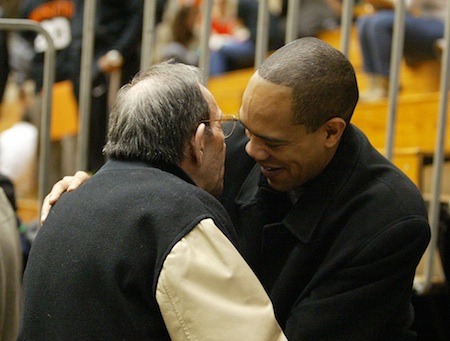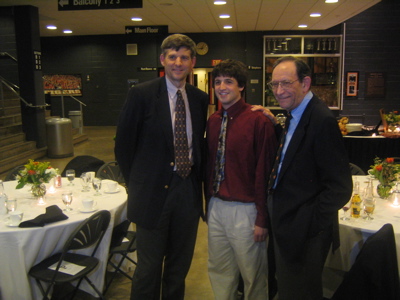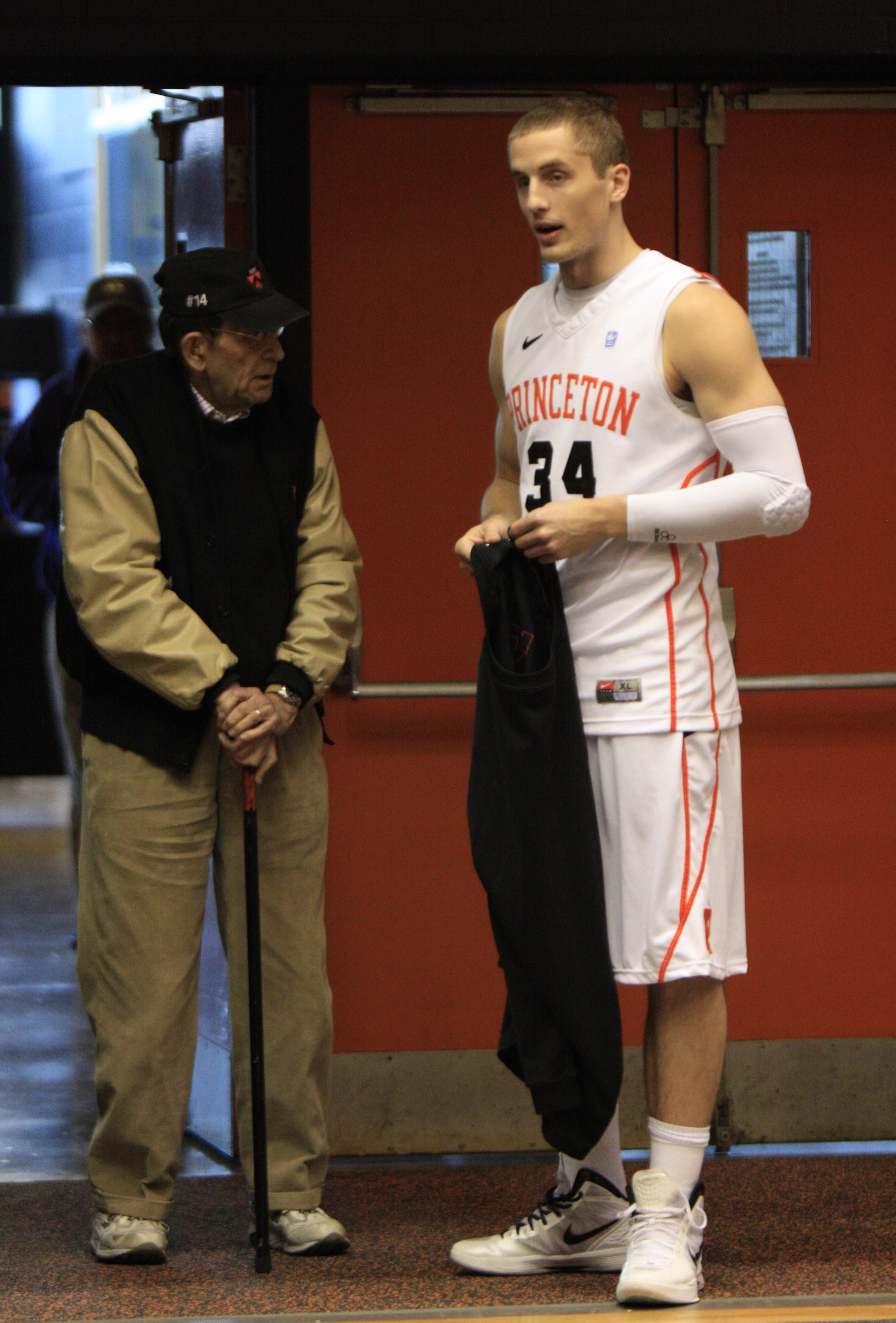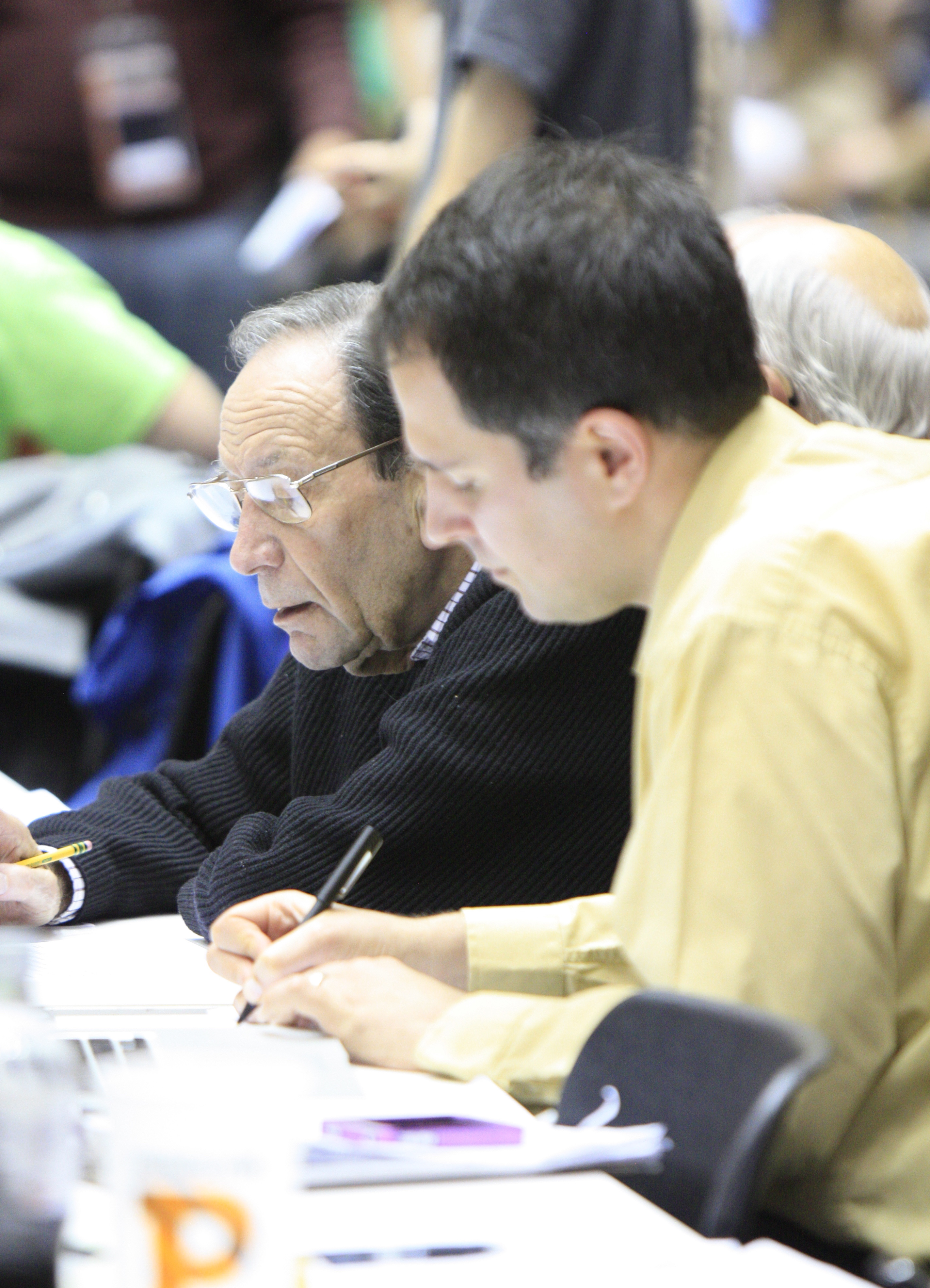My friend Stan Adelson died earlier this year. He was 94.
Stan was someone who was always around the Princeton basketball program, and he cared about the Tigers to a degree that few I’ve known could match.
With his passing we’ve lost one of the last connective tissues that rode team busses with Butch van Breda Kolff during the Bill Bradley era and was also present straight through to the modern day.
Though it was clear this moment was coming, I’ve had a hard time collecting my thoughts since I learned the news. The following may not be entirely linear I still wanted to write down my fond memories of Stan in one location.
I was aware of Stan Adelson before the first time we spoke, which might have been during a pair of train rides to Manhattan in 2000 for Princeton’s pair of less-than-compelling games in the ECAC Holiday Classic versus Rutgers and Penn State. Introduced by my mom, Stan and I sat together on New Jersey Transit as he told me with pride about how he had used the Internet to re-connect with a group of long-lost army buddies from World War II.
When I first thought about shutting down this site’s coverage, my wife tried to convince me to keep going as long as Stan Adelson was alive. Stan meant so much to me that this idea weighed as significantly as any factor while trying to decide if I would proceed.
After my daughter Maggie was born a decade+ ago, Stan emailed me and in his typical fashion wrote: “Wonderful news, but can she go to her left?”
Stan and his wife Enid shared the sort of profound love that was preposterously beautiful. They cared about each other so deeply. It was an impossible bar for other relationships to equal.
As Enid’s health deteriorated in 2011 Stan was grief-stricken, but could still joke to me: “Princeton basketball season, or at least the news of a 'Blue Chip' commitment, where are you when I need you?”
Enid died later that year, and Stan gave a lengthy PowerPoint presentation at Stonebridge in Montgomery all about their courtship and loving decades together. Though Stan did once quietly confess to me: “I have a mistress, and her name is Princeton basketball.”
A few months down the line Stan would join us for Shabbat dinner and tell their entire story again, nearly word for word.
Stan was the sort of person I wanted to be when I grew older (still do), and someone who served as a de facto parent - and later grandparent - for so many classes of Princeton players over the years.
He loved talking with his friends after a basketball game – either huddled in the now-empty arena or over a pie at Conte's - about what ifs: Who did this and who did that; who would have and who should have.
In 2010 Stan was not at the annual postseason Princeton basketball banquet, so I emailed him to make sure he was doing OK. It turned out that he was not in attendance for the first time in 47 years due to what he described afterwards as “a very human error” with the invitation list. Though he did concede “emotionally I really feel the void.” He ended his response to my check-up writing “I think the earth will continue to spin, even after I've missed a basketball dinner.”
Retroactive Sanctification is a term often associated with the late professor Marvin Bresser, but Stan Adelson told me he laid “a little claim” to the expression as well.
What does Retroactive Sanctification mean exactly?
Well, the further out from graduation, the more revered you were for the time you spent while you were at Princeton – especially on the basketball court and especially in the mind of one Coach Pete Carril.
I hope as time progresses and as fewer and fewer current players have their own memories of Stan, he is retroactively sanctified by those who are still around, and not forgotten as the earth continues to spin.
During Stan’s last years it became more and more difficult for him to get to Jadwin Gym. He was brittle and couldn’t move especially swiftly, yet he didn’t want to put anyone out to help him make the trip from his home in Montgomery. However, Princeton was able to provide him a permanent seat on press row (the closest to the entrance in fact) and in conjunction initially with the team’s manager, a location was arranged where Stan could be dropped off and easily access courtside via elevator.
I’d look across the gym each game to spot him and try to catch up at halftime, usually to listen to Stan’s good-natured grousing about how things could be going better regardless of what the scoreboard said.
By 2014 he admitted he now lacked the strength to get from the parking lot to the gym and was “too vain to be seen in a wheelchair,” so his trips to Jadwin were at best annual occurrences. He’d be in front of his computer watching the action from just up the road instead, agonizing over wins and losses then commenting about what he saw. Stan was a regular participant in the on-line discussion of Ivy League basketball well into his 90s.
You’d see him in a ubiquitous dark blue or black long sleeve sweater, or wearing his Princeton varsity jacket, a hangdog expression that could break into a warm smile and a sly wit tucked away for just the right occasion.
I was so delighted to find Stan on the floor in New Haven in 2011 during the extended celebration after Doug Davis sent the Tigers to the NCAA Tournament at the buzzer over Harvard, especially knowing it could not have been easy for him to get up to Connecticut for the Ivy League playoff.
It was important to me to tell Stan how much he mattered, so I always made sure to mention in every email that I loved him.
I did so a few weeks ago when I messaged to wish him a happy birthday, only to learn soon thereafter that he had passed away earlier in the summer.
One last thing about Stan: The more he cared about you, the harder a time he’d give you.
Entirely with kindness understood, telling you the opposite of how he truly felt.
To that I say Stan, I didn’t enjoy your company, and I won’t miss you dearly at all, my friend.






